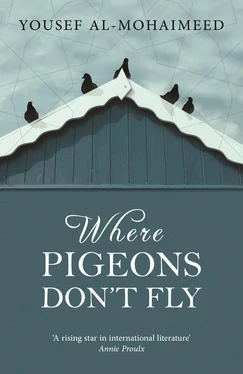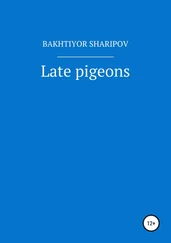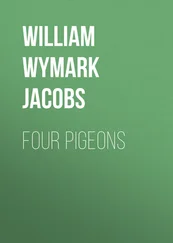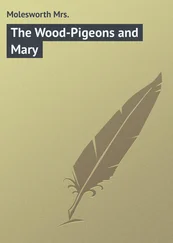‘Fahd hasn’t called?’
‘He called yesterday. He asked after you; he says hello.’
‘Do you know if he was able to open the bag?’
‘I didn’t ask him. I forgot.’
‘Fine, so you’ve no idea what’s inside?’
‘Treasure maybe? Gold?’ Lulua laughed.
— 45 —
FAHD DROVE THE CAR down University Road, inspecting the shops on either side. Tarfah said she didn’t like tunnels; despite the dim red lighting she sensed that she would die in one.
He laughed. ‘Don’t tell me you’re not Tarfah any more. You’ve turned into Diana without my knowing it!’
Her laughter died away as she moved her head to his right shoulder and whispered flirtatiously, ‘I love you, Dodi!’
He had bought her a mocha from Dr Keif and a Turkish coffee for himself. He didn’t like Turkish coffee in paper cups, he said, because Turkish coffee was all about creating the right mood, and that meant somewhere to sit, a porcelain cup and his mother’s wonderful laugh as she whispered in his father’s ear at sunset in their home on the top floor in Ulaya. The coffee’s aroma would steal out of the living room and enter his room, fashioning a warm and intimate atmosphere from his parents’ love. Two cosy lovebirds, until King Death, idly circling over Qaseem Road and searching for a victim, had swooped down on two drivers, one sleepy, one fiddling with his mobile phone, and his father had crashed, his soul flying up into the distant skies.
In the last tunnel westbound tunnel before King Saud University she told him to take Takhassusi Road. She examined the shops on the side of the road and told him that this road had a history: her cousin Umm Samia had lived there. Running south to where it hit Mecca Road at the Aziziya branch of Panda, the street began with construction supply stores and travel agencies and ended with interior décor shops and the offices of the Bin Baz Marriage Project, before running on into undeveloped plots, the very plots where the Committee once ran into her friend Nada.
‘Just imagine, the stupid girl goes for a morning drive down Thamama Road with her boyfriend and on the way back they decide to go into the new developments and suddenly the Committee’s vehicle is right behind them.’
As she said this Tarfah little realised that a few months later, on a street near Takhassusi Road, she too would fall into the hands of the men from the Committee and would weep and plead to no avail.
They passed a luxurious décor store and she said the owner’s son had proposed to her through her brothers before she married Abdel Kareem, her brother Ahmed’s friend.
No one in the family said anything when Ahmed insisted on Abdel Kareem. Tarfah had become a guinea pig in her brothers’ experiments and she loathed them all with the exception of Ayman. He was sweet and calm; nobody felt his presence in the house and nobody called him by his name.
‘Come here, goat!’ they’d say. ‘Go there, goat!’
Anyone sitting with them for the first time would assume they were mocking how tractable he was with his mother and sisters; any one of them could set him trotting ahead of her like a goat.
Their older brother Abdullah’s fabricated story was another matter. He claimed that when their mother, Qumasha, gave birth to Ayman her breasts had dried up and his desperation for milk had prompted her to hire a black woman as a wet nurse. Unable to continue paying the woman, Abdullah would say, Qumasha had finally let her go after her older brother came up with an ingenious solution: he took the two-year-old and gave him a she-goat’s teat, from which he drank until he became so inoffensive and pliable that on first acquaintance anyone would think he was mentally ill.
But Qumasha, who smiled whenever Abdullah told this tale of his, said that when Ayman’s uncle found out that he was the only one of the children to be raised on powdered milk, he started calling him ‘son of a cow’. This became ‘son of a sheep’ and the children took up this nickname and toyed with it like a lump of clay until it turned into ‘son of a goat’. His siblings almost forgot his real name, and he became ‘son of a goat’, until his mother became exceedingly cross at the indignity of being described as ‘the goat’ and his name changed again, becoming simply ‘goat’.
Ayman had left her by the Paris Gallery entrance of Granada Mall and she went in, giving the impression that she was late as usual for her two friends, Nada and Fatoum. But instead she snuck out of the mall: going into a couple of shops then leaving via the main entrance where her lover waited for her. She took great care that no one recognised her. Though enveloped in her black abaya and veil, there were those who might guess it was her from the way she wore her robe, from her slow, funereal steps, from the exaggerated confidence with which she looked about her and from the plump white hand which Fahd was addicted to kissing.
Fahd switched on the car’s secondary lights as she walked out, happy that there was no security guard at the entrance, not that he would have noticed that she had arrived in a black Camry and driven off in a blue Hyundai Accent. Given her fear of the average security guard’s keen powers of observation she was careful to go in by one entrance and leave by another; when she entered by the Paris Gallery she would go out by Carrefour, Extra, the main entrance, or the rear door that led to the neighbourhood of Granada.
‘I worry that my aunt and her daughter might drop by the house, decide to join me at the mall and call me on my mobile to find out where I am,’ she had said, but the only call she got was from Ayman, which she answered immediately, convincing him that she would be late and would give him a ring as soon as she’d finished walking with her friends.
Fahd was parked outside the mall’s main entrance and he started the engine as she approached. She walked slowly over, her handbag in one hand and a pink carrier bag in the other. Climbing in she said that she didn’t want to do anything with him, they would just talk, but his hand mounted hers and she took it, bringing it beneath her black veil and slowly kissing it. In no time she was sucking his fingers one by one.
Fahd slowed outside the entrance to some furnished flats and saw a fat, young, bareheaded Saudi sitting on a chair in reception. He didn’t stop. Saudis scared him because they were more curious than Sudanese or Indian receptionists. He might co-operate with the Committee or inform for pay and turn them in.
They entered the bedroom of another furnished flat like a pair of thieves. She started to kiss him as usual and, intoxicated, he surrendered. She took a red rose from the pink carrier bag. It had no cellophane wrapping, as though it had been freshly plucked from a garden. She said that she had taken it from a flower shop inside the mall. He handed her a small, container and a carton slightly larger than a matchbox. Smiling shyly she opened the container and looked at the strip within: three bubbles sealed with tinfoil. He told her to rip one open and smell it. She broke the seal, sniffed and said, ‘Oh! Wonderful!’
It was the smell of fresh strawberries.
She took hold of him by his head and as though it might be their last time together, moved over every inch of him until every pore in his body came alive and his mouth sprang forward searching for the rain cloud. Her rain cloud. She rained torrents, he would tell her, and her soul laughed lightly as she mischievously asked, ‘Even in summer?’
He chuckled and whispered in her ear, ‘Even in summer: no rain dance needed. Just passing next to it makes it pour.’
On her way home she talked to Fahd on the phone as she sat alongside her brother, telling him he hadn’t given her the hand cream or her gloves. Then she laughed. He only realised she was sitting next to Ayman when the steady blip of the Camry’s speed monitor sounded. Hastily, he said goodbye—‘When you get home, call!’—and hung up.
Читать дальше












